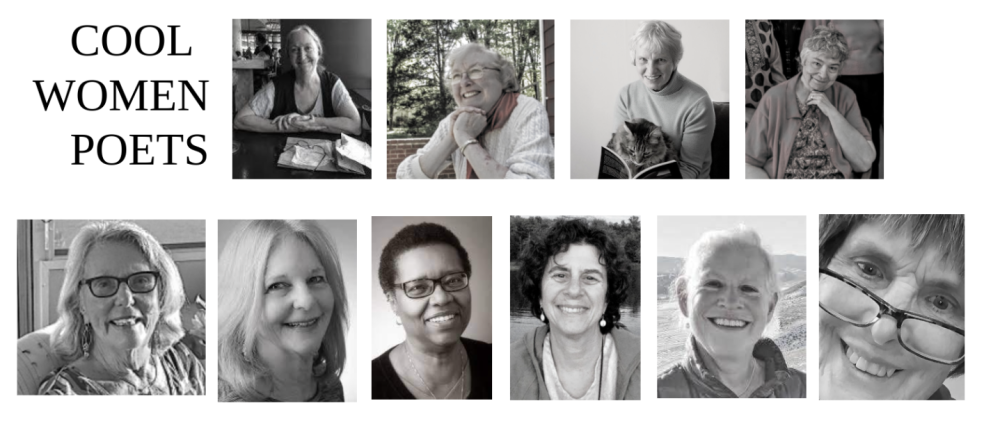In an article which appeared in Town Topics October 20, 2004, Carolyn Foote Edelmann and Betty Lies explained how seven years before they had decided to form a small group and critique each other’s work once a month. “At the first session seven women critiqued fourteen poems in two hours. After seeing how well the group worked together, the women continued finding a time each month to meet again. What [made] the group effective is that each poet can bring her own view on how to make a poem sing.” As Ms. Edelmann said, “We advance the voice of each poet, but we don’t alter their voice.”
The article explained how the group met for three years as a critique group, and then in 2000 they were approached to do a Valentine’s Day reading at Micawber Books in Princeton, and decided they needed a name. “Up until that point they had called themselves The Sunday Group, or Poets, but they wanted something catchy. After one of the women suggested they call their reading ‘Hot Poems for Cool Women,’ the name stuck.”
According to the article their first real taste of success came in February 2002, when they held what had become an annual Valentine’s Day reading at the U-Store. “In the midst of a snowstorm the women were greeted by a standing-room only audience, that kept them for two hours afterward to sign copies of their book” (their first anthology). Said Ms. Edelmann, “It had just taken off.” Betty Lies explained how the readings worked, “The readings are very structured…they perform three rounds…each reading a poem that fits the night’s theme which ‘harmonizes their clash’ of poetry…[they] also play off audiences’ reactions to their poetry, sometimes changing the poems they read according to audience response.”
As reported in a Meadows Foundation newsletter from 2008, “When the Cool Women appeared at Tulipwood in November 2007 for a reading entitled ‘This Old House,’ members of the audience were not prepared for the excitement of the jazz-like performance. Their style of reading is concert-like (jazz), with the performers demonstrating their individual styles as well as being part of the ensemble. The poets do not know which poem they will be reading until they interact with the other.”
Eloise Bruce described how the group took on the task of mentoring young girl poets in 2004. She explained, “I had the idea of forming Cool Girls some years ago. We met weekly with the girls and different ones of us facilitated prompts with them at the Princeton YWCA Bramwell House. The girls wrote some beautiful poetry and we published a booklet of their poems and held a reading with them.” These readings at the YWCA Princeton continued for several years. More recently the Cool Women have taken turns sponsoring readings with young students at local schools. For example, on April 23, 2017, Lois Marie Harrod and Judy Michaels appeared with students they had been mentoring at a reading at the Hopewell Branch of the Mercer County Library, in Pennington. And Eloise Bruce and Gretna Wilkinson are enthusiastic members of the editorial staff of Ravens Perch, a bi-monthly literary magazine which Gretna originally founded, that seeks material from poets “of all ages.”
Eloise also shared her memory of venues the Cools had done that were particularly exciting, for instance one she organized that was, as she explained, “particularly moving for all of us at my church St. James African Methodist Episcopal in Hightstown. We did the event with the Capitol City Gospel Singers, an all-male group. It was a really amazing group dynamic and people from the church brought friends and they also read favorite poems.” For Eloise another amazing locale was in Portland, Oregon in 2004. “We had a huge spread in the lifestyle section of the Oregonian and then read at the Mountain Book Store. It was standing room only and the crowd flowed out onto the street. The women were so hungry for what we had and I got a renewed appreciation for how rare and beautiful it is to have what we have as a group. It is something that goes beyond the dynamic of straight and effective critiquing into the realm of collective and community, something that is not easily maintained and extremely rare.”
